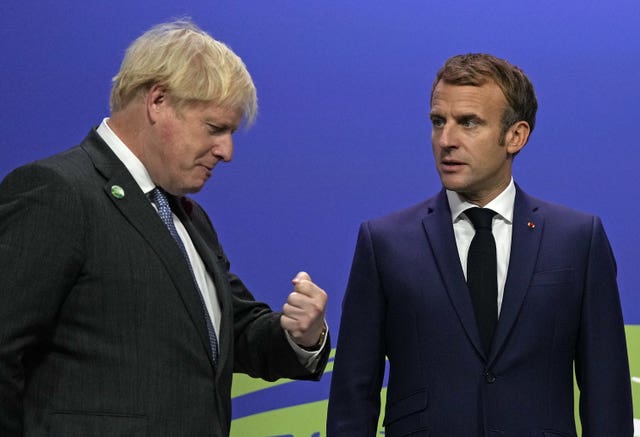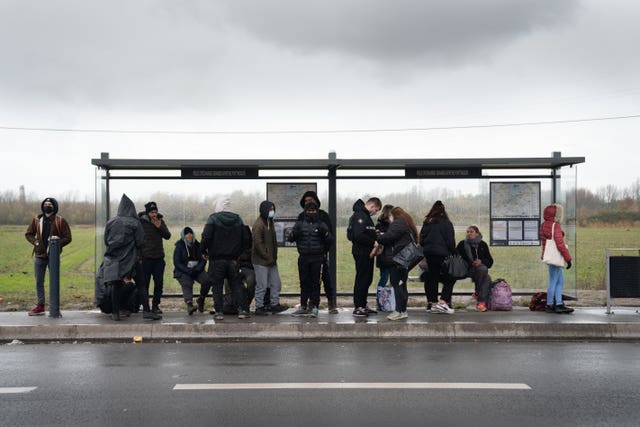France has reacted with fury after Boris Johnson publicly called on Paris to take back people who succeed in making the perilous Channel crossing to Britain. A French government spokesperson accused the prime minister of “double-speak” as the fallout from the sinking of a refugee boat on Wednesday with the loss of 27 lives erupted into a full-scale diplomatic row.
“Double-speak”
Earlier the French Interior Ministry announced it was withdrawing an invitation to home secretary Priti Patel to attend a meeting in Calais on 28 November of ministers from key European countries to discuss the crisis. The French were enraged by Johnson releasing a letter he sent to president Emmanuel Macron setting out his proposals to tackle the issue. They included joint UK-French patrols by border officials along French beaches to stop boats leaving – a move which Johnson said could begin as early as next week but which Paris has long resisted.
The UK isn't uniquely affected by migration, our European neighbours take a lot more refugees in than us.
132,349
436,100
1,210,636
We have a migrant crisis – but it isn’t the one Priti Patel and Boris Johnson would have you think it is. #RefugeesWelcome pic.twitter.com/3OWJvrdkqE
— Breakthrough Party
(@BThroughParty) November 25, 2021
Johnson also called for talks to begin on a bilateral returns agreement, saying it could have “an immediate and significant impact” on the flow of people attempting the crossing. However, the proposal was dismissed by French government spokesman Gabriel Attal, who said it was “clearly not what we need to solve this problem”.
He said the prime minister’s letter “doesn’t correspond at all” with discussions Johnson and Macron had when they spoke on 24 November. He said:
We are sick of double-speak
Macron said Johnson’s decision to post his letter on his Twitter feed suggested he was “not serious”. He told a news conference:
We do not communicate from one leader to another on these issues by tweets and letters that we make public. We are not whistleblowers
Johnson’s alleged “double-speak” has prompted a new round of criticism following the many other problems he’s recently brought upon himself:
In my opinion – Johnson's letter to Macron last night- and posted on Twitter – was deliberately aimed to be provocative.
He has no conception of how a PM should behave or conduct relationships with other world leaders
His sense of entitlement is now becoming pathological.— Clare Hepworth OBE (@Hepworthclare) November 26, 2021
I think we just all have to accept that there isn’t a single situation that Boris Johnson can’t make worse.
— Emma Kennedy
(@EmmaKennedy) November 26, 2021
“Hand in glove”
Transport secretary Grant Shapps insisted Mr Johnson’s proposals were made in “good faith”, and appealed to the French to reconsider their decision to withdraw the invitation to Patel. He told the BBC Radio 4 Today programme:
I think it is really important that we work hand-in-glove with the French. I don’t think there is anything inflammatory to ask for close co-operation with our nearest neighbours
The proposal was made in good faith. I can assure our French friends of that and I hope that they will reconsider meeting up to discuss it.”
‘If we’re doing less than our allies are, we can’t ask them to keep people out of our country. It’s just bad politics.’
James O'Brien reflects on Boris Johnson asking France to ‘help us do even less’.@mrjamesob pic.twitter.com/laCAu24V1m
— LBC (@LBC) November 26, 2021
In a statement reported on French media, the Interior Ministry said the meeting on 28 November would go ahead with interior minister Gerald Darmanin and his counterparts from Belgium, the Netherlands, and Germany and representatives of the European Commission.

In his letter, the prime minister argued a bilateral returns agreement would be in France’s interest by breaking the business model of criminal gangs running the people-smuggling trade from Normandy.
Under Johnson’s proposals:
– Joint patrols would prevent more boats from leaving French beaches.
– Advanced technology such as sensors and radar would be deployed to track migrants and people-trafficking gangs.
– There would be joint or reciprocal maritime patrols in each other’s territorial waters and airborne surveillance by manned flights and drones.
– The work of the Joint Intelligence Cell would be improved with better real-time intelligence sharing to deliver more arrests and prosecutions on both sides of the Channel.
– There would be immediate work on a bilateral returns agreement with France, to allow migrants to be sent back across the Channel, alongside talks to establish a UK-EU returns agreement.
Why on Earth would France agree to take refugees back from the UK, if the UK is not offering to take any refugees from France?
Let alone accept British troops wielding British authority to patrol their beaches?
The sense of entitlement from Johnson's govt is pretty extreme.
— Dr Mike Galsworthy (@mikegalsworthy) November 26, 2021

However, as many people argue, a much better way of dealing with the crisis would be to open the borders:
Write to your MP to support amends to the cruel borders bill & stop people dying in channel – no penalty for irregular entry, no offshore processing, Afghan resettlement & family reunion routes now, humanitarian visas for seeking asylum #refugeeswelcome https://t.co/WRI2aLJUao
— Rainey Kelly
(@raineyinlancs) November 26, 2021
We cannot allow people seeking refuge to continue to die at sea, and we cannot continue to allow people seeking safety to be locked up in detention centres.
Join us as we demand no more channel deaths! No more borders! No more state murders!
6.30pm tonight at the Home Office. pic.twitter.com/ek6siH6X7E
— Sisters Uncut (@SistersUncut) November 25, 2021
By The Canary
This post was originally published on The Canary.
